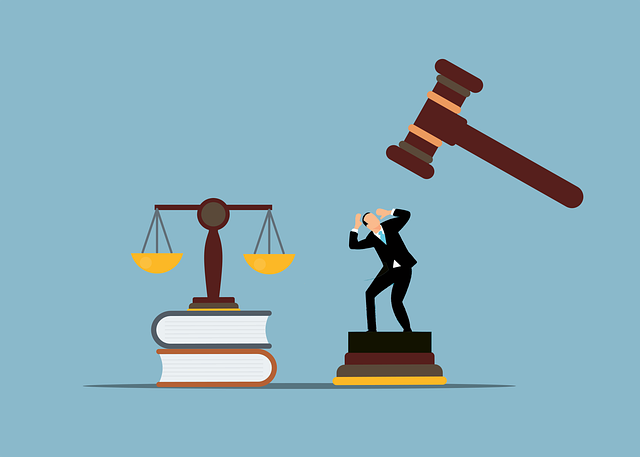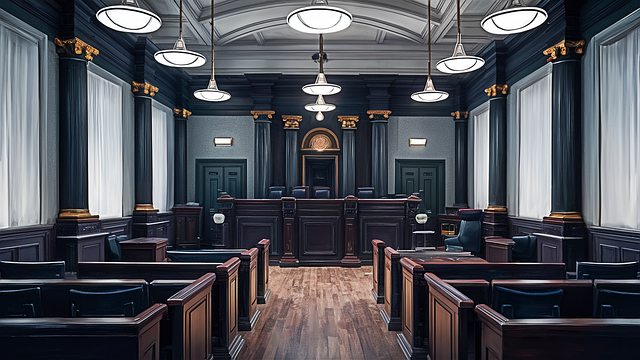Oregon's legal framework is a comprehensive system governed by state laws (ORS), federal regulations, and administrative rules, ensuring fairness and structured dispute resolution. The Oregon State Bar regulates attorneys, upholding high standards and client protection. The court system, led by the Supreme Court, is hierarchical with specialized courts for juveniles and families. This framework guarantees criminal defense rights, due process, and a robust civil litigation process. Access to legal aid is vital, providing free or low-cost services to low-income residents across diverse legal areas.
“Oregon’s legal defense landscape is a complex yet vital aspect of its judicial system, offering unique insights into the rights of accused individuals. This article delves into the state’s legal framework, exploring key laws and regulations that form the basis of criminal and civil proceedings. From the regulatory role of the Oregon State Bar to the court system’s structure, we provide an in-depth guide. Understanding these elements is crucial for anyone navigating Oregon’s justice system, ensuring awareness of their rights and access to quality legal representation.”
- Understanding Oregon's Legal Framework: An Overview of Key Laws and Regulations
- The Role of the Oregon State Bar in Lawyer Regulation and Discipline
- Exploring Oregon's Court System: Structure and Jurisdiction
- Criminal Defense Rights in Oregon: What Accused Persons Can Expect
- Civil Litigation Process in Oregon: A Guide for Plaintiffs and Defendants
- Access to Legal Aid in Oregon: Who Qualifies and Available Services
Understanding Oregon's Legal Framework: An Overview of Key Laws and Regulations

Oregon’s legal defense landscape is shaped by a robust and intricate legal framework that forms the basis for all court proceedings within the state. Understanding this framework is crucial for anyone navigating Oregon’s justice system, be it individuals, businesses, or legal professionals. At its core, Oregon’s legal system operates under a mix of state laws and federal regulations, each playing a vital role in governing various aspects of society.
Key laws include the Oregon Revised Statutes (ORS), which codify the state’s general and permanent statutes, covering everything from criminal offenses to civil procedures. Additionally, administrative rules further clarify and implement these laws, ensuring a structured legal environment. For instance, the Oregon Court System rules govern procedural matters, while labor laws protect workers’ rights and establish guidelines for employment practices. This comprehensive legal framework provides a solid foundation for resolving disputes and ensures fairness and consistency in Oregon’s courts.
The Role of the Oregon State Bar in Lawyer Regulation and Discipline

The Oregon State Bar (OSB) plays a pivotal role in regulating and disciplining lawyers within the state’s legal framework. Established to maintain high standards among practitioners, the OSB oversees various aspects of professional conduct, ethics, and performance expectations for attorneys. Through its rigorous licensing process, the bar ensures that only qualified individuals are permitted to practice law, safeguarding clients’ interests and the integrity of Oregon’s legal system.
Moreover, the OSB enforces disciplinary rules, investigating complaints against lawyers and taking appropriate actions, including reprimands, suspensions, or disbarment, when necessary. This regulatory mechanism helps maintain public trust in the legal profession by holding attorneys accountable for their conduct, ensuring they adhere to the established ethical guidelines, and upholding the principles of justice within the state’s legal defense landscape.
Exploring Oregon's Court System: Structure and Jurisdiction

Oregon, like many U.S. states, has a structured court system designed within its legal framework to ensure fair and efficient administration of justice. At the foundation lies the Supreme Court, the highest authority on all matters of law, interpreting constitutional issues and establishing precedents. Below this are the courts of appeals, handling appeals from lower tribunals, and ensuring consistency in legal interpretations across the state.
The trial level is comprised of district courts, which are the first point of contact for most legal matters. These courts handle a diverse range of cases, from criminal offenses to civil disputes, within their given jurisdictions. Oregon’s legal framework also includes specialized courts, such as juvenile and family courts, focusing on matters regarding minors and families respectively. This multifaceted court system reflects the complex nature of legal issues within the state, ensuring that each case receives the appropriate level of scrutiny and consideration within a structured legal framework.
Criminal Defense Rights in Oregon: What Accused Persons Can Expect

In Oregon, criminal defense rights are protected by a robust legal framework designed to ensure fairness and due process for all accused individuals. When faced with criminal charges, those in Oregon can expect a series of protections aimed at safeguarding their interests. The state’s legal system adheres to the U.S. Constitution and federal laws, guaranteeing the right to an attorney, the presumption of innocence, and protection from self-incrimination. Accused persons are entitled to consult with a lawyer promptly after their arrest or when charged, ensuring they understand their rights and options.
Oregon’s legal framework also provides for public trials, allowing accused individuals to see and challenge the evidence against them. The state respects the right to a speedy trial, meaning proceedings should commence without unnecessary delay. Furthermore, Oregon law guarantees the right to appeal, offering accused persons an avenue to seek review of their case if they believe errors occurred during the initial legal process. These rights collectively form a strong foundation for those facing criminal charges in Oregon, ensuring they can mount a robust defense within the state’s legal framework.
Civil Litigation Process in Oregon: A Guide for Plaintiffs and Defendants

In Oregon, civil litigation follows a structured process designed within the state’s legal framework to resolve disputes between plaintiffs and defendants. It begins with filing a complaint at the appropriate court, outlining the nature of the claim and damages sought. After service of the complaint, the defendant has a set period to respond, typically by filing an answer or motion to dismiss. This exchange sets the stage for discovery, where both parties exchange information and evidence relevant to the case.
Discovery methods include depositions, interrogatories, and requests for production of documents. As the case progresses, it may lead to alternative dispute resolution (ADR) options like mediation or arbitration, which can be more efficient and cost-effective than a full trial. If settlement cannot be reached, the case proceeds to trial, where a judge or jury considers evidence and arguments presented by both sides before delivering a verdict and ruling on damages.
Access to Legal Aid in Oregon: Who Qualifies and Available Services

In Oregon, access to legal aid is a cornerstone of the state’s legal framework, designed to ensure equal justice for all residents. Individuals who meet certain income eligibility criteria can qualify for free or low-cost legal services through a range of organizations and programs. These services encompass a wide array of legal areas including criminal defense, family law, housing issues, and debt management.
Eligibility is based on a combination of income and asset levels, with priority given to those facing critical legal problems. Oregon’s legal aid agencies work collaboratively to provide diverse assistance, from representation in court proceedings to counseling and guidance on legal rights and responsibilities. This safety net ensures that even low-income Oregonians can navigate the state’s legal framework effectively.
